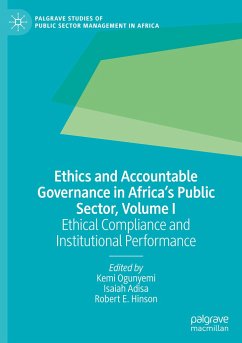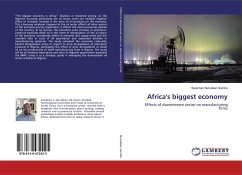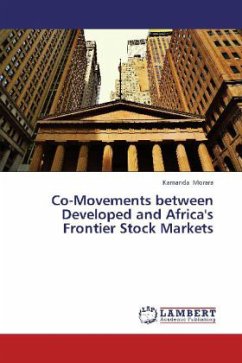
Africa's Emerging Securities Markets
Developments in Financial Infrastructure
Versandkostenfrei!
Versandfertig in 1-2 Wochen
88,99 €
inkl. MwSt.

PAYBACK Punkte
44 °P sammeln!
The increasing globalization of financial markets has resulted in a substantial increase in net private capital flows to developing countries, primarily the emerging economies of Asia, Eastern Europe, and Latin America. Until recently, investors have ignored opportunities in Africa. African markets caught investors' attention in 1994 with Kenya's 179% U.S. dollar returns leading world equity markets, along with six of the world's top ten markets being in Africa. With low levels of correlation between African and developed world markets, the African exchanges represent ideal portfolio diversifi...
The increasing globalization of financial markets has resulted in a substantial increase in net private capital flows to developing countries, primarily the emerging economies of Asia, Eastern Europe, and Latin America. Until recently, investors have ignored opportunities in Africa. African markets caught investors' attention in 1994 with Kenya's 179% U.S. dollar returns leading world equity markets, along with six of the world's top ten markets being in Africa. With low levels of correlation between African and developed world markets, the African exchanges represent ideal portfolio diversification opportunities. Moreover, rates of return for African investments are among the highest returns in the world, yet African nations have not attracted the foreign direct investment that is required to change their economies. Dr. Clark's research examines the nature and evolution of Africa's emerging securities markets and their role in regional economic development. He shows that the continent's trading systems represent many different trading arrangements without standardized rules and procedures. African countries continue to implement reforms to strengthen the development of financial markets, but without the appropriate market microstructure and custodial arrangements international investors will not provide African projects with the equity capital required for further development. The government's role in the regulation of developing equity markets, therefore, is a critical element to the success of the reform process. Clark argues that freeing the economies to international competition will reap significant dividends for the continent's emerging economies. As the markets evolve, structural impediments will reduce, leading to increased efficiencies and lower capital costs.












